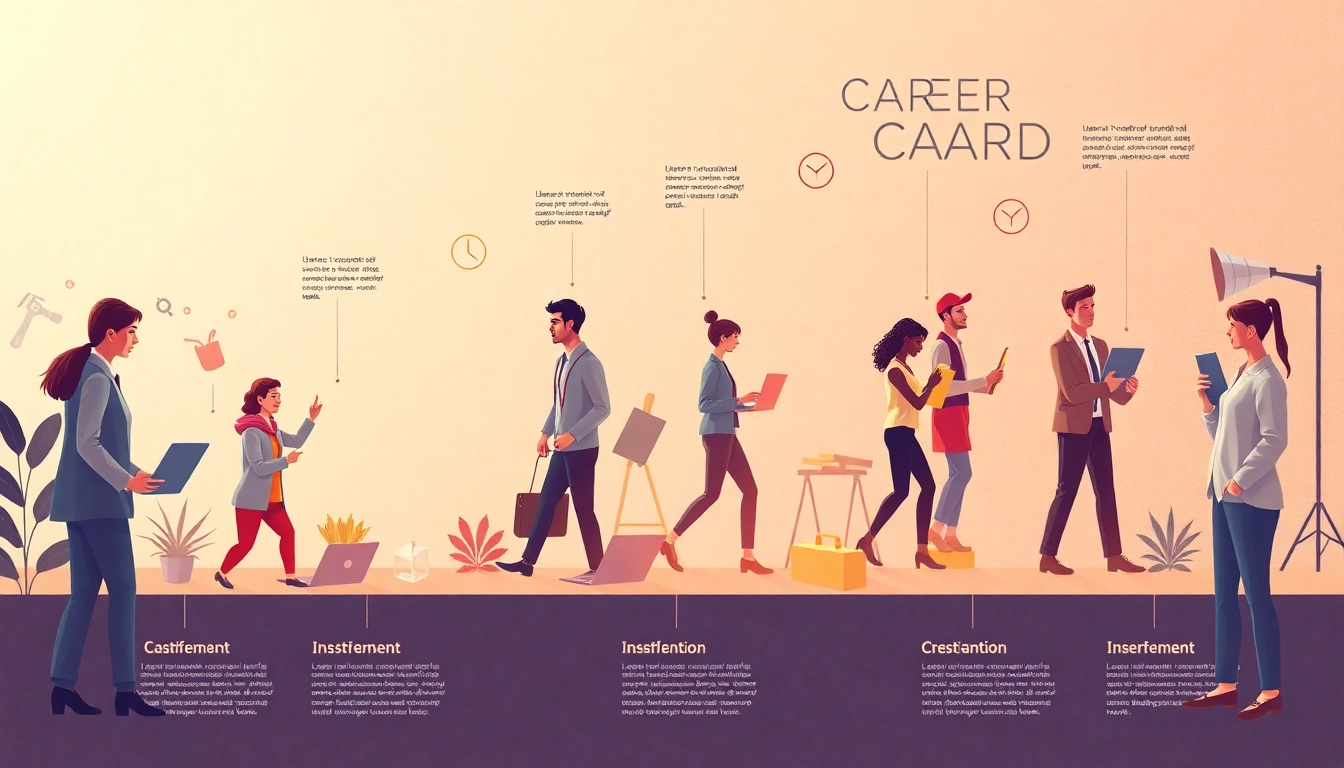Understanding Career Compatibility
Choosing a career is one of the most significant decisions in life. It shapes your daily existence, influences your mental and emotional health, and ultimately defines your professional journey. However, discovering what job truly resonates with you can feel like navigating a labyrinth. Understanding career compatibility is crucial to ensure that your job aligns with your skills, interests, and values. Discover what jobs click with you can be the first step toward finding a fulfilling career.
The Importance of Compatibility in Career Choices
Career compatibility is about finding a match between your personal identity and the work you do. A job that resonates with your values and interests often leads to enhanced job satisfaction and performance. When your work aligns with your intrinsic motivations, it not only boosts your mental well-being but also increases the likelihood of career longevity.
Key Factors Influencing Job Satisfaction
Several factors contribute to job satisfaction, including:
- Work Environment: The atmosphere in which you work has a profound impact on your job satisfaction.
- Company Culture: Understanding whether the company’s values align with yours is key.
- Work-Life Balance: Jobs that allow for a healthy balance between personal life and work lead to greater satisfaction.
- Opportunities for Growth: Having pathways for professional development and advancement can significantly affect your career happiness.
- Pay and Benefits: While not the only factor, fair compensation plays a pivotal role in job satisfaction.
Misconceptions Around Career Fit
Many individuals have misconceptions about what career fit means. A common belief is that each person has a single job that is perfect for them. In reality, career fit is more complex and fluid. It can evolve as you change personally and professionally.
Assessing Your Interests and Skills
Once you understand the importance of compatibility in career choices, the next step is assessing your own skills and interests. This self-assessment can guide you toward career paths that feel authentic and rewarding.
Identifying Your Unique Skills
Identifying what you excel at is a fundamental step in the career exploration process. Skills can be categorized into:
- Hard Skills: Technical abilities, such as proficiency in software or languages.
- Soft Skills: Interpersonal abilities, including communication and teamwork.
Consider compiling a list of your skills and then seek feedback from peers or mentors to gain further insights into where your strengths lie.
Taking Interest and Personality Tests
Utilizing tools such as personality assessments can provide significant insights into your work preferences. Tests like the Myers-Briggs Type Indicator or the Holland Code (RIASEC) are excellent tools for understanding your profile and how it correlates with various careers. These tests can highlight your strengths and suggest compatible professions.
Analyzing Past Experiences for Insights
Reflection on your past job experiences can unveil patterns in what you enjoy or dislike about work. Keep a journal detailing your thoughts about previous roles. Questions to ponder include:
- What tasks did I enjoy the most?
- What environments made me feel energized?
- How did my colleagues influence my job satisfaction?
Researching Career Options
Once you’ve assessed your skills and interests, it’s time to explore career options that align with your profile. This stage involves comprehensive research into different fields, roles, and industries.
Utilizing Online Resources for Career Exploration
The digital age provides numerous platforms for career exploration. Websites like CareerExplorer and My Next Move offer valuable resources, including tests and career profiles that match your interests. By using these platforms, you can better understand the job market and identify paths that resonate with you.
Networking and Seeking Professional Advice
Networking is a powerful tool in discovering career paths. Reach out to professionals in fields you are interested in. Attend career fairs, webinars, and industry conferences. Seeking advice from veterans in the field can offer pragmatic perspectives and sometimes lead to job opportunities.
Exploring Trending Careers
Staying informed about emerging careers is essential for long-term stability. Research industries that are projected to grow, such as technology, healthcare, and renewable energy. Platforms like CareerOneStop can provide insights on growth sectors and the skills required to thrive in them.
Practical Steps to Discover Your Dream Job
Armed with the knowledge of your compatibility and thorough research, you can move forward to the practical steps of discovering your dream job.
Setting Realistic Career Goals
Establishing SMART (Specific, Measurable, Achievable, Relevant, Time-bound) goals will provide clarity and direction. Break your long-term career aspirations into actionable steps that are feasible within a specific timeframe.
Creating an Action Plan
Your action plan should include specific steps to enhance your skills and network within your desired fields. This could involve enrolling in online courses, volunteering, or seeking internships to gain practical experience. Having a structured plan will help keep you accountable.
Finding Mentors and Support Systems
Mentorship can be invaluable in your career journey. Seeking a mentor who has traversed a similar path can provide guidance, advice, and encouragement. Consider joining professional organizations or forums where you can connect with potential mentors and peers.
Monitoring and Adjusting Your Career Path
Once you start on your chosen career path, it’s crucial to monitor your progress and remain flexible. The world changes, as do personal interests.
Evaluating Your Career Progress
Regularly review your career goals and how well you are moving towards them. Consider keeping a career journal where you document what you’ve learned, the skills you’ve developed, and any new interests you’ve discovered.
Adapting to Changes in Interests
Your career isn’t set in stone. As you learn, grow, and experience new facets of work, your interests may shift. Be open to exploring new paths and hopping between careers that better fit your evolving personal goals.
Continuing Education and Skill Development
The importance of lifelong learning cannot be overstated. Engaging in continuous education — be it through formal qualifications or informal online courses — ensures that you remain relevant in a rapidly changing job market. Seek out new certifications, attend workshops, and remain curious.
